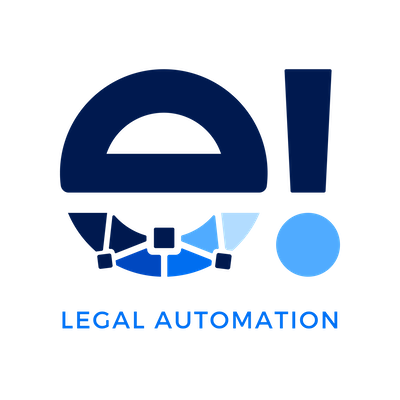Introduction to Democratization in Legal Services
The democratization of legal services, driven by generative AI (Artificial Intelligence), is transforming the legal industry. This shift goes beyond modern technology; it changes how legal services are accessible and delivered.
Smaller law practices are now empowered with tools once reserved for larger firms. This levels the playing field and broadens client options.
The focus is on generative AI’s role in this democratization. It affects legal practices of all sizes, altering how legal professionals work and enhancing client access to legal aid. This marks a new era in legal services, where technology enables more equitable access.
Generative AI: Democratizing Legal Services for Small Practices
Generative AI has significantly influenced the democratization of legal services, particularly for small practices. Previously, these firms faced resource limitations but now utilize AI for tasks like document automation and legal contracts. This technology levels the playing field, allowing them to offer high-quality services previously exclusive to larger firms.
AI tools in small practices are cost-effective and enhance precision and efficiency. They include predictive analytics for legal outcomes and AI-assisted advice, enhancing small firms’ capabilities. This technological shift is a cornerstone in the democratization of legal services.
Additionally, AI’s impact extends to client interactions. Small practices use AI-driven client management systems to streamline communication and manage schedules. This allows for more focus on strategic legal work, democratizing services for both practices and their clients.
The integration of AI in small legal practices also encourages innovation and creativity. Lawyers can leverage AI to explore new areas of law, develop unique legal strategies, and offer more customized solutions to clients. This fosters a more dynamic and responsive legal sector, contributing further to the democratization of legal services.

Expanding Client Access Through AI in Legal Democratization
AI in legal services is democratizing access for a broader range of clients. It lowers costs and enhances efficiency, crucial for marginalized and economically disadvantaged individuals. AI tools like chatbots for legal consultations and systems for legal queries make legal guidance more accessible and affordable.
These AI-driven tools provide transparent and fair legal advice, addressing biases and errors in legal processes. They empower clients with information, enabling better decision-making. This empowerment is a key aspect of democratization, making legal services not only available but also understandable.
Moreover, the increased accessibility facilitated by AI is creating a more diverse client base. This diversity enriches the legal profession, bringing a wider array of perspectives and legal challenges. It also helps legal professionals to better understand and serve a broader spectrum of society, furthering the democratization process in legal services.
Ethical Considerations in AI-Driven Legal Democratization
The democratization of legal services through AI raises significant ethical concerns that must be meticulously addressed. Ensuring data privacy and algorithmic fairness is paramount to maintaining trust and integrity in legal outcomes. The use of Ethical Generative AI in law is critical in this regard, as it emphasizes accountability and transparency in AI systems.
Ethical Generative AI focuses on creating AI models that adhere to legal and ethical standards. This includes safeguarding against biases in AI algorithms and ensuring that AI operations in legal decisions are transparent and understandable. Incorporating these ethical frameworks is essential to prevent inadvertent harm and uphold justice in the legal system.
Balancing AI’s capabilities with human oversight remains crucial. Legal professionals should retain the final judgment in legal matters, ensuring that the human element in decision-making is preserved. This approach helps maintain empathy and ethical considerations in legal practices, amidst rapid technological advancements.
Moreover, as AI becomes increasingly integrated into legal practices, legal professionals must become proficient in AI ethics. Continuous education and training in this area will be vital, equipping legal practitioners to navigate the ethical challenges presented by these technologies.

The Future of Legal Services: Communization Through AI and Beyond
The future of legal services through AI extends beyond democratization. AI is expected to become more integrated, offering sophisticated legal solutions. Predictive legal analytics could emerge from AI’s ability to analyze vast datasets, aiding in case preparation and strategy.
Innovation in LegalTech startups plays a pivotal role in this evolution. These startups are introducing cutting-edge technologies, like blockchain and advanced AI, reshaping the legal industry’s future. Their contributions are not just in enhancing efficiency but also in pioneering new ways to deliver legal services, making the sector more adaptable to digital advancements.
Additionally, democratization might extend to legal education, with AI-powered training tools providing more accessible learning experiences. This could further democratize the field, offering varied opportunities for aspiring legal professionals.
In anticipation of these developments, legal education institutions and professional bodies are beginning to incorporate AI and technology-focused curricula. This integration prepares future legal professionals for a tech-driven landscape, ensuring they are skilled in both traditional law and emerging technologies. Such education is crucial for maintaining the pace of democratization in legal services as AI evolves.
Conclusion: Embracing Democratization in Legal Practices through AI
The democratization of legal services through AI marks a significant advancement in the industry. This shift paves the way for more equitable and accessible legal assistance, crucial in today’s world. However, it’s vital to balance the benefits of AI with ethical considerations, ensuring that the human element remains integral in legal practices.
AI’s impact on democratizing legal services is profound, extending its advantages to small practices and broadening client access. This technological shift also plays a pivotal role in promoting fairness within the legal system. As the legal industry continues to evolve alongside AI, creating an environment where technology complements and enhances services for everyone becomes increasingly important.
This trend of democratization through AI is not a mere temporary phase but signifies a long-term transformation within the legal sector. It opens up both opportunities and challenges, necessitating a continuous process of adaptation and learning. By wholeheartedly embracing these changes, the legal industry can remain relevant, responsive, and resilient, especially in the face of rapid technological advancements.






